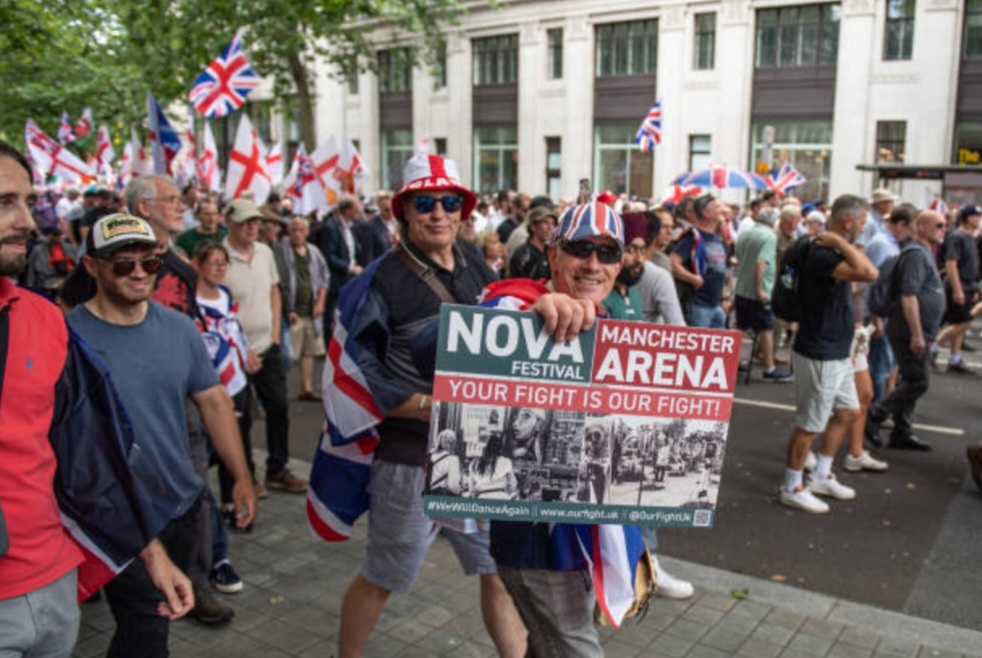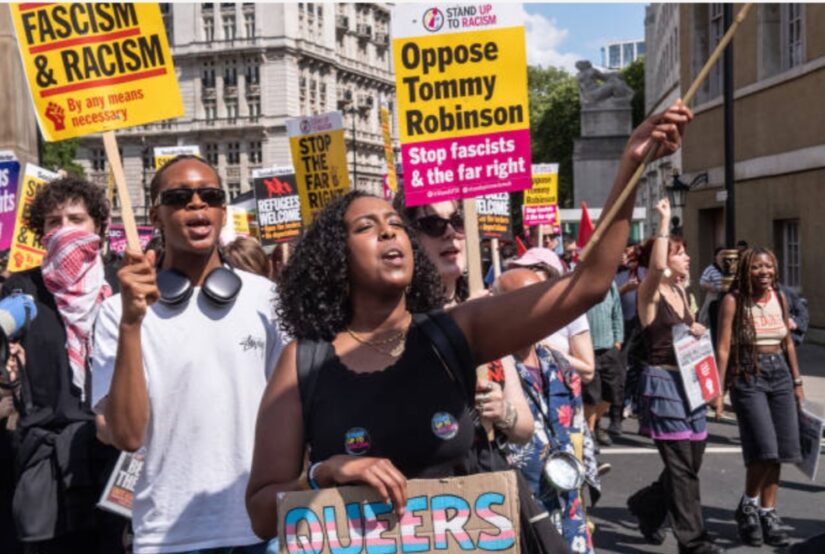
Crystal Charles
A mass rally led by far-right activist Tommy Robinson brought central London to a standstill on Saturday, drawing a crowd that police estimated at between 110,000 and 150,000 people. The demonstration, branded “Unite the Kingdom,” ended in violent clashes with police and counter-protesters, leaving 26 officers injured and more than two dozen people under arrest.
The Metropolitan Police said trouble flared when Robinson’s supporters confronted counter-demonstrators during the afternoon. Officers who had formed lines to keep the groups apart were punched, kicked and struck with bottles, according to police accounts. Reinforcements in helmets and riot shields were dispatched to support the 1,000 officers already deployed across the capital.
Police confirmed that 26 officers sustained injuries, four of them serious. Reported cases included broken teeth, a suspected broken nose, concussion and a spinal injury. At least 25 arrests were made for offences including violent disorder, assault and criminal damage. “This level of violence against our officers is unacceptable and will be fully investigated,” a Metropolitan Police spokesperson said.
The scale of the rally far exceeded expectations. Organisers claimed it was the largest demonstration of its kind in Britain in recent years, with participants travelling from across the country. Robinson, whose real name is Stephen Yaxley-Lennon, told supporters the march was a call to defend British values and resist what he described as “attacks on free speech and national identity.”
Meanwhile, a counter-demonstration organised by Stand Up To Racism drew around 5,000 people under the banner of the “March Against Fascism.” The event, held near Trafalgar Square, featured speeches from campaigners and politicians, including Labour MP Diane Abbott. She urged supporters to “stand shoulder to shoulder with asylum seekers, women and minority communities” in rejecting Robinson’s message.
Tensions between the two groups had been expected. In the days leading up to the rally, police issued warnings of possible disorder and imposed restrictions on the routes demonstrators could take. Despite those measures, skirmishes broke out as the events coincided in central London.
By evening, order was largely restored, though police remained on alert as investigations continued. The Metropolitan Police said additional arrests are likely once officers review video evidence from the scene.
Saturday’s rally highlights the polarisation of Britain’s streets as debates over immigration, nationalism and political extremism intensify. For Robinson and his supporters, the turnout was a show of strength. For his opponents, it was a reminder of the need to confront far-right ideology with equal resolve.

